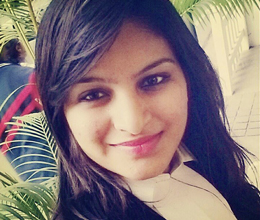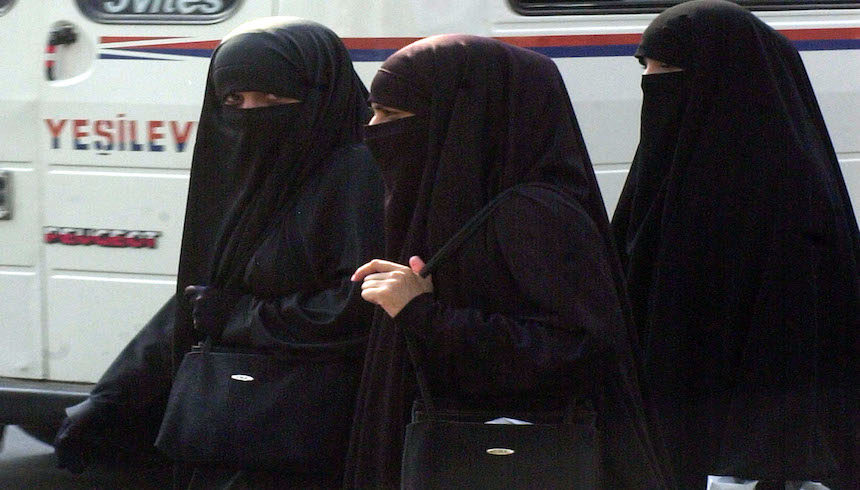Triple Talaq:
The “so-called” triple-talaq is an absurdity that militates against the words and spirit of the Quran – Tahir Mahmood
In a welcome move, the Union Ministry in response to a clump of petitions against polygamy and triple talaq, filed an affidavit to the Supreme Court against such practices on 7th October, 2016.
The Centre said that equality in gender and a woman’s dignity are of utmost importance. Religious Practices cannot cause a hindrance to the fundamental rights guaranteed in the Constitution. Triple Talaq, polygamy, nikah halala cannot be justified as religious practices. Such practices need to be re-examined by the Supreme Court of India in the light of gender equality, protection of dignity and prevention of discrimination against the women in India.
It also mentioned that other Muslim Countries have already undertaken extensive reforms in their laws and practices to manifest that such practices do not form an integral part of Islam practices. Under such circumstances, India being a secular country must not deny a part of its citizens their rights, musch less allow a section of our country be worse off than its counterparts in theocractic countries.
In a rather appalling reply to the Centre’s affidavit, the All India Muslim Personal Law Board said that,‘if there develops serious discord between the couple, and the husband does not at all want to live with her, legal compulsions of time-consuming separation proceedings and expenses may deter him from taking the legal course. In such instances, he may resort to illegal, criminal ways of murdering or burning her alive.’
Shayara Banu’s fight against Instantaneous Triple Talaq:
Ever since Shayara Banu moved the Supreme Court against the practice of instantaneous Talaq under Muslim Personal Law, there have been a slew of articles written on her grit to be the first woman to challenge the personal law. Some even holding it to be in the same league as Shah Bano case.
Her husband and his family repeatedly threatened Sharaya Banu of divorce anytime they found a fault in her. She was at the receiving end of various such atrocities including having to undergo several abortions and not being allowed to meet her sister in 14 years. The constant battering took a toll on her health due to which her husband sent her home saying she could come back once she recovered completely. However, after recovery, what she received instead was talaq-nama through post.
One would wonder why Shayara did not make a claim under Domestic Violence Act, 2005 or Muslim Women (Protection of Rights on Divorce) Act, 1986.
Instead, Shayara decided to file a petition before the Supreme Court on the basis of this triple talaq. She only challenges the instantaneous triple talaq and not the system of triple talaq itself, which is spread over a period of 90 days.
Status of Instantaneous Triple Talaq in other countries:
As of now, 22 countries have abolished triple talaq taken in one sitting including countries like Turkey, Tunisia, Algeria, Iraq, Iran, Indonesia, Bangladesh and Pakistan. It is to be noted that only Sunni Muslims follow this practice and not Shia. However, All India Muslim Personal Board has been buoyantly opposing abolishment of triple talaq.
The Talaq procedure:
Originally as written in the book ‘Introduction to Islamic Law’, by Dr Tahir Mahmood and Dr.Saif Mahmood that the three consecutive menses-free time (tuhr) is the minimum period for which a man has to wait before giving irreconcilable divorce.
The first divorce is called Ahsan (best), which is given during Tuhr period. They can reconcile during iddat period, which is usually for a period of 3 months. The second divorce is called Hassan (good), where the procedure is same as the first one. The third one is the final one, which is an irreconcilable divorce and the marriage dissolves immediately.
While, it is believed that only the husband has the prerogative of divorcing his wife and not the other way round. The Dissolution of Muslim Marriage Act, 1939 enables women to file for divorce on certain grounds including not knowing the whereabouts of the husband for 4 years, the husband having been sentenced to imprisonment for 7 years, failure to provide maintenance for 2 years etc.
Instantaneous Triple Talaq and its misuse:
However, Talaaq-ul-bidat was a one sitting procedure that was introduced in order to end a malicious marital relationship as quickly as possible. Over time the Muslims, including the four Sunni schools of jurisprudence, accepted the system.
Soon, many utilized the flaw in the system in order to commit misdeeds. Triple Talaqs are now sent through speed posts, emails, text messages and the latest modes being even Whatsapp and Facebook messenger.
Making triple talaq valid has emboldened Muslim men to take divorce for the most rickety reasons such as not cooking good food, not taking part in household chores, wanting to pursue her career etc. After all, all that the husband has to do is to type down ‘talaq’ thrice and he gets to end all ties with his wife of several years. Then on, there is no looking back.
Abdul Rahim Qureshi, Assistant General Secretary at All India Muslim Personal Law Board asserts that divorce through digital platforms like message, whatsapp, email etc is not recognized by Islam and Muslim Personal law. Yet, several Muslim women say that this is not the case in practice. Some such cases can be read here.
Supreme Court on Shayara Banu Case and Triple Talaq:
While listening to Shayara Banu’s plea, the Hon’ble Supreme Court of India asked the Centre to submit a report on the status of women that have sought a ban on oral, unilateral, triple talaq and polygamy.
The report suggests abolition of such practices as it makes the women vulnerable and weak. It not only suggests specific amendments in the Dissolution of Muslim Marriages Act, 1939 but also provides for interim maintenance.
The report also states that all judges must be made aware of the decisions taken by the Supreme Court over the years in support of Muslim women as most are unaware of such liberal, forward-thinking decisions.
When asked about his take on the report, Kamal Faruqui, a member of the All India Muslim Personal Law Board was of the opinion that any suggestion to ban practices such as triple talaq is not aceptable and results in direct interference of the government in the religious affairs of Muslims as such practices arise from the Quran.
Triple Talaq itself is a skewed system:
It is best for Muslims and people around the world to realize that instantaneous triple talaq is not what Quran stands for. Quran supports fairness, equality and justice and triple talaq, leave alone the recently accepted instantaneous triple talaq achieve none of it by any means. If two people enter into a marital relationship with each other’s consent. Why does it all of a sudden become only a man’s prerogative to opt for divorce? Muslim Board needs to stop reasoning this skewed system and make way for a fair procedure that protects the rights of the Muslim women. All that they are asking is a dignified divorce procedure after all.
Order passed by Lucknow Bench of Armed Forces Tribunal:
In the Order, the bench comprising of Justice D.P. Singh and Air Marshal Anil Chopra in Farooq Khan v. Chief of Army Staff & Others, wherein the applicant, Farooq bought a petition under Section 14 of Armed Forces Tribunal Act, 2007 claiming to be aggrieved by payment of maintenance to his wife who he divorced under Muslim Personal Law. The court examined all the facts of the case, declared triple talaq unfair and unconstitutional, and formulated certain opinions.
- Constitutional provisions override any personal laws that violate constitutional rights of persons.
- Muslim marriage is a contract. Hence, it cannot be rescinded unilaterally.
- Nikah takes place on offer and acceptance when both commit to ‘I do.’ Applying the same analogy, divorce cannot be taken without the other party’s consent.
- It violates Article 14 and Article 21 of the Constitution by not giving Muslim women equal rights and dignity in the matters of marriage and divorce. This right shall override right to practice one’s religion guaranteed under Article 25 of the Constitution, any day.
- In a situation wherein the husband abuses his position in terms of divorce and remarriage, he should be punished under Section 498A of IPC.
- Declaration of oral talaq shall not be given force by either the Government or courts as it is detrimental to the fundamental rights of the person. No person must be persecuted, tortured or humiliated in the name of personal law.
- While all religions like Hindus and Muslims have their own ways of worshipping God, each different from the other in terms of the method of praying and the God itself. This cannot be interfered into by the courts. However, tradition, customs or usage brought about by men cannot be against fundamental rights of any person or any woman belonging to any religion and this warrants court’s interference.
The entire Order can be read here.
Allahbad High Court calling Triple Talaq Unconstitutional:
In the latest news, on December 9, 2016, Allahbad High Court heard a petition that seeked for a direction to ensure safety and security of the petitioners. Petitioners being the man and the second wife against the harassment by the mother of the first wife.
While, refusing to address the legality of Triple Talaq mentioned that the right to freely practice and propogate religion under Article 25 of the Constitution is subject to right to equality guaranteed under Article 14 of the Constitution. It went on to say that repeating ‘talaq’ thrice is not just anti-Constitutional but also anti-Quranic.
Picture Courtesy: Wikimedia








There Are 3 Comments